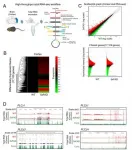The survey directly asks the public about policies they want to see backed by governments at COP26, when the UK and Italy will gather world leaders in Glasgow from 1 November to commit to urgent global climate action.
Researchers at the University of Cambridge worked with polling agency YouGov on a message-testing experiment involving 14,627 adults, with samples of around 2,000 each in Brazil, China, India, Indonesia, Poland, the UK and the US. Polling took place from 8th to 31st December 2020.
Participants were randomly assigned to read either one of four "treatment" texts about climate change - drafted to reflect current UN messaging, public health, social norms and patriotism - or a neutral text, unrelated to climate and used to test "baseline" support.
The participants were then asked if they agreed or disagreed with the statement that "all national governments should do more to protect the environment."
Baseline figures showed extremely high levels of support for government-led action. In six of these countries, at least nine out of ten participants agreed that governments should do more for the environment. In the US, the figure was three out of four (79%).
Compared to the baseline, exposure to one of the climate change texts led to a small but significant rise of about one or two percentage points on average. The figures ranged in the UK from 89-93%; as against 96-98% in Brazil, 91-95% in China, 92-97% in India, 99-100% in Indonesia, 91-94% in Poland and 76-79% in the USA.
Across all the responses, a majority (55%) of those who voted for former President Donald Trump in the November 2020 presidential elections agreed, although this figure was well below the 95% figure for those who voted for President Joe Biden. In the UK, 87% of Conservative supporters agreed, as compared to 97% of Labour supporters.
The issue may have even bridged the Brexit divide, with 96% of Remain voters and 86% of Leave voters in agreement on the need for more action.
Dr Lee de-Wit, a political psychologist at the University of Cambridge, said that the clearest evidence that a message had had an impact was in China, "where pollution is a daily reality for many". Support for more action rose from 91% to 95% among those that read about public health benefits of tackling climate change - a text that focused on air pollution.
"We live in a time of polarisation, and environmental issues have long embodied the political divisions in society. However, this may be changing. We can see an overwhelming consensus emerging for greater government-led action to protect the environment in major nations," de-Wit said.
"As we approach COP26, politicians the world over should take confidence from these findings. Voters across party lines want to see more government action. The time is now."
The survey also asked which policies governments should support at COP26. In each of these seven countries, baseline figures showed that at least 50% supported four policies.
The most popular on average was action "to protect and preserve" wildlife, marine life and plants; followed by a policy "to plant more trees to absorb the gases that cause climate change"; then spending more on developing clean technologies; then reducing "the production over thirty years of the gases that cause climate change."
Participants were also asked if they thought that businesses should be made "to pay for the damage they do when their activities contribute to climate change". In every country except China, baseline figures showed this to be a more popular policy than giving businesses a "fair timetable to stop activities that contribute to climate change." Across the seven countries, on average, 58% supported making businesses pay and 48% supported the timetable option.
In the United Kingdom, baseline figures for the most popular policies were protecting wildlife (84%), planting trees (81%) and spending more on clean technology (75%). Some 70% thought businesses should pay for environmental damage, while 67% supported reducing the production of greenhouse gases over 30 years. Baseline support for giving businesses a fair timetable to adapt stood at 55%. Only 5% believed that governments are "doing all they should".
In the United States, baseline figures were 70% for protecting wildlife, 67% for planting trees, and 60% for spending more on clean technology. Some 54% thought businesses should pay for environmental damage, while 51% supported reducing the production of greenhouse gases over 30 years. Baseline support for giving businesses a fair timetable to adapt stood at 42%. Only 10% believed that governments are "doing all they should".
Across the seven countries, for participants who had been exposed to one of the climate change texts, support for these policies rose by around 1% on average, which was not a significant change. However, support for tree-planting did rise significantly from a baseline of 73% to 76% for those exposed to the UN's current messaging, and to 75% for those who read a text on the public health benefits of tackling climate change.
De-Wit said that in the run up to COP26: "We face huge challenges protecting the environment, but global public opinion may no longer be chief among them."
Dr Sander van der Linden, Director of Cambridge's Social Decision-Making Lab, also involved in the research, added: "These survey results make it clear that irrespective of age, gender and nationality, citizens around the world want governments to do more to protect the environment."
The findings can be viewed here.
INFORMATION:
YouGov's samples were nationally and politically representative in the UK, USA, and Poland. In Indonesia and Brazil, they were nationally representative. In China, the sample was representative of the online community, and in India, it was representative of the urban community. The margin of error in each country was +/- 2%.
Support for policies at COP26 in some other nations:
China:
Protecting wildlife: 76%
Planting trees: 68%
Spending more on clean technology: 67%
Making businesses should pay for environmental damage they cause: 45%
Reducing production of greenhouse gases over 30 years: 67%
Give businesses a fair timetable to stop activities that contribute to climate change: 52%
Governments are already doing all they should: 4%
India:
Protecting wildlife: 74%
Planting trees: 77%
Spending more on clean technology: 66%
Making businesses should pay for environmental damage they cause: 55%
Reducing production of greenhouse gases over 30 years: 57%
Give businesses a fair timetable to stop activities that contribute to climate change: 53%
Governments are already doing all they should: 2%
Brazil:
Protecting wildlife: 82%
Planting trees: 74%
Spending more on clean technology: 77%
Making businesses should pay for environmental damage they cause: 69%
Reducing production of greenhouse gases over 30 years: 73%
Give businesses a fair timetable to stop activities that contribute to climate change: 49%
Governments are already doing all they should: 1% END



